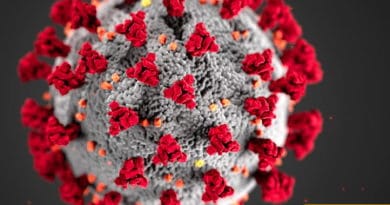Measles cases reach 22 in Southeast Michigan
Measles cases in Southeast Michigan have reached 22 cases, according to the Michigan Department of Health and Human Services. Wayne County has one confirmed case.
MDHHS is working closely with the Oakland and Wayne County health departments to identify possible exposure locations. Known exposure sites in Oakland County are listed at Oakgov.com/health. Additional sites of potential exposures, including those in Wayne County, may be identified as more information becomes available.
The measles vaccine is highly effective and very safe. A single dose of measles vaccine protects about 95 percent of children, but after two doses, almost 100 percent are immune. You cannot get measles from the vaccine. It is effective within 72 hours of exposure to prevent illness. In addition, immune globulin (Ig) treatment is effective within six days of exposure for high-risk individuals. Talk to your healthcare provider to determine if immune globulin is right for you and if it is available.
High-risk individuals include those who are unvaccinated or unsure about vaccination status, pregnant women and those who are immune-compromised (have a weakened immune system due to illness and diseases like HIV, malnutrition and/or medications).
The Oakland County Health Division is offering vaccination at their offices in Southfield and Pontiac on Monday, 8:30 a.m.- 6 p.m. and Tuesday-Friday, 8:30 a.m.- 5 p.m. For more information, call 800-848-5533. Please note these offices are not testing centers:
- North Oakland Health Center, 1200 North Telegraph Road, Building 34 East, Pontiac
- South Oakland Health Center, 27725 Greenfield Road, Southfield
The Oakland County Health Division is also offering vaccination clinics March 27-29 at Young Israel of Oak Park, 15140 West 10 Mile Road, Oak Park, 10 a.m. – 2 p.m.
The Wayne County Health Department offers walk-in vaccination at 33030 Van Born Road, Wayne on Monday, Tuesday, Thursday and Friday, 8 – 11 a.m. and 12:30 – 4 p.m. and on Wednesday, 11 a.m. – 2 p.m. and 3:30 – 7 p.m. Call 734-727-7101 for more information.
Measles is a highly contagious, vaccine-preventable disease that is spread by direct person-to-person contact, and through the air.
The virus can live for up to two hours in the air where the infected person was present. Symptoms of measles usually begin 7-14 days after exposure, but can appear up to 21 days after exposure and may include:
- High fever (may spike to over 104˚F).
- Cough.
- Runny nose.
- Red, watery eyes (conjunctivitis).
- Tiny white spots on the inner cheeks, gums, and roof of the mouth (Koplik Spots) 2-3 days after symptoms begin.
- A rash that is red, raised, blotchy; usually starts on face, spreads to trunk, arms, and legs 3-5 days after symptoms begin.
If symptoms develop, residents are urged to not visit their doctor or emergency room unless they have called ahead so they can take precautions to prevent exposure to other individuals.
From 2001 – 2012, the average number of measles cases reported nationally per year was about 60. But in recent years there have been far more, which is of great concern to public health authorities. So far this year, there have been 314 cases of measles confirmed in 15 states. In 2018, Michigan had 19 cases of measles, the most reported in the state since 1994; the majority of people who got measles were not vaccinated.
The first of two routine childhood measles vaccine doses is given at 12 months of age. A second vaccine dose is given before the start of kindergarten. For international travel, infants as young as 6 months should be vaccinated against measles. Measles vaccine, or other acceptable documentation of immunity to measles, is recommended for all persons travelling internationally.
For more information about measles, visit CDC.gov/measles. For more information about Michigan’s current measles outbreak, visit Michigan.gov/MeaslesOutbreak.
In an effort to help parents protect their children from serious vaccine-preventable diseases, MDHHS is participating in the I Vaccinate campaign. I Vaccinate provides the facts parents need to make informed decisions about vaccinations. For more information about immunizations and the I Vaccinate campaign, visit IVaccinate.org.




